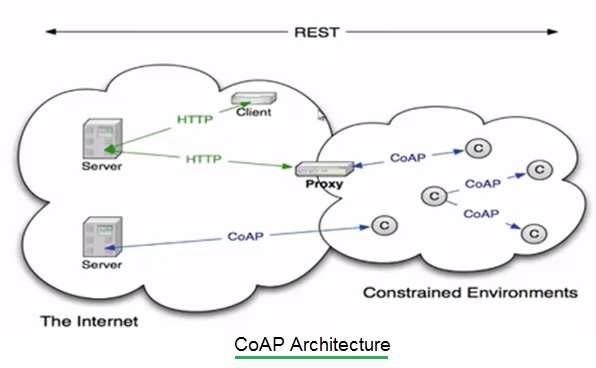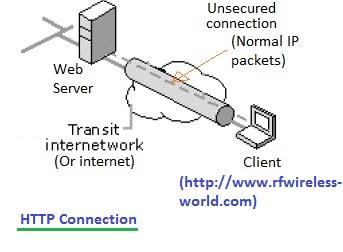CoAP vs. HTTP: A Comparative Analysis
Advertisement
This article compares CoAP (Constrained Application Protocol) and HTTP (Hyper Text Transfer Protocol), highlighting the key differences between these two protocols. We’ll explore their design philosophies, use cases, and technical implementations.
What is CoAP?
CoAP stands for Constrained Application Protocol. It’s essentially an upgraded version of HTTP, specifically designed for resource-constrained applications like IoT, WSN (Wireless Sensor Networks), and M2M (Machine-to-Machine) communication.

CoAP Architecture
Key characteristics of CoAP:
- UDP-based: CoAP relies on UDP (User Datagram Protocol) for transport.
- Reliable: It utilizes ACK (acknowledgment) messages to achieve reliability similar to TCP.
- Low Latency and Power Consumption: CoAP is engineered for minimal overhead, resulting in low latency and reduced power consumption compared to HTTP.
What is HTTP?
HTTP stands for Hyper Text Transfer Protocol. It’s the foundation of data communication on the World Wide Web.

HTTP connection
As illustrated above, HTTP facilitates communication between clients and servers in an unsecured manner. HTTPS (HTTP Secure) is the secure version, adding encryption for enhanced security.
Key characteristics of HTTP:
- Web-centric: Primarily used for viewing web pages and accessing websites.
- Internet-focused: Designed for internet-based applications and devices where resource constraints aren’t a primary concern.
- TCP-based: HTTP uses TCP (Transmission Control Protocol) for reliable transport.
CoAP vs. HTTP: A Detailed Comparison
The following table summarizes the key differences between CoAP and HTTP:
| Feature | CoAP | HTTP |
|---|---|---|
| Protocol | UDP | TCP |
| Network Layer | IPv6 with 6LoWPAN | IP layer |
| Multicast Support | Supported | Not supported |
| Architecture Model | Client-Server & Publish-Subscribe | Client-Server |
| Synchronous Communication | Not needed | Required |
| Overhead | Low overhead, simple | More overhead compared to CoAP, complex |
| Application | Resource-constrained devices (WSN/IoT/M2M) | Internet devices where resource limitations are not a primary concern |
Advertisement
 RF
RF






